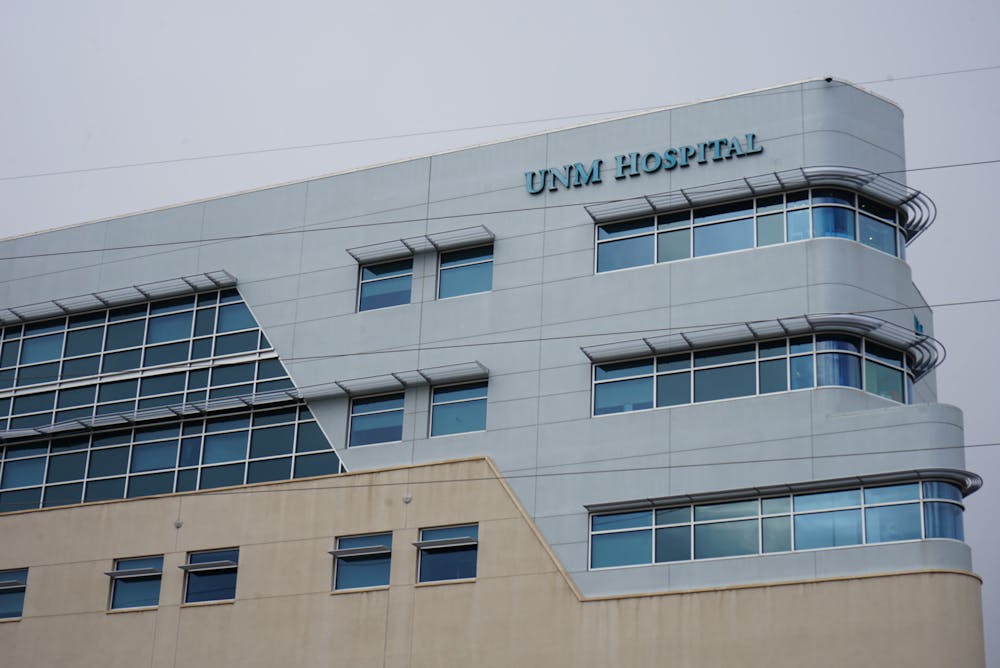The future of medical research at the University of New Mexico remains uncertain after a federal judge temporarily blocked funding cuts for overhead costs at research institutions.
President Donald Trump announced the cuts Feb. 7, which would put a cap on funding from the National Institutes of Health for “indirect costs.” These costs are used for things like laboratory space, faculty and equipment. The proposed cuts aim to maximize the amount of funds that go toward “direct” research costs, according to the announcement.
“That loss of funding really impacts our ability to do research,” said UNM Provost and Executive Vice President for Academic Affairs James Holloway. “Because it pays for all these essential support infrastructures that, in turn, really would negatively impact the health of New Mexicans, because that’s what we do this research for.”
The cuts would cap indirect funding at 15%, which would lead to an over $20 million loss for UNM, according to Holloway.
“It would also impact the economy of New Mexico, since it reduces the number of people we employ, reduces the amount of research dollars we could spend in the state,” Holloway said.
New Mexico is among 22 states that filed a lawsuit Feb. 10 challenging the funding cuts. Later that day, a federal judge temporarily blocked the cuts. Anjana Samant, deputy counsel for impact litigation at the New Mexico Department of Justice, is representing New Mexico in the suit.
UNM is the only medical educational institution in the state, Samant said, meaning it is the only facility that does research and teaching on medicine, care and human health. The funding cut could impact jobs, limit the amount of research UNM is able to do and the nature of its research.
“It also does have the potential for impacting the health and well-being of New Mexicans,” Samant said. “It’s a really broadly impacting decision.”
Indirect costs for research projects are negotiated with the NIH and vary in percentages, according to Samant. New Mexico has a 52% indirect cost rate, Samant said.
The University’s research includes treatment for substance use disorders, infectious disease, kidney disease and cancer, as well as public health-related research, according to Holloway and Samant.
Generally, UNM’s federal research funding works by the University spending money and being reimbursed at the end of the month, according to Holloway. For now, UNM will continue to perform research as planned.
“We’re taking some risk in doing that,” Holloway said.
Get content from The Daily Lobo delivered to your inbox
A Feb. 21 hearing for further arguments in the lawsuit could determine whether UNM will be reimbursed less than expected, according to Holloway. If this happens, UNM will weigh its options, which include potentially reducing research spending, Holloway said.
“We don’t want to tell people to stop doing their research or stop spending on their research, because then, we’re just taking the uncertainty and transmitting it down to the level of individual researchers,” Holloway said.
If the funding cuts take effect after the hearing, UNM may have to raise tuition and the state legislature may have to provide additional financial support, according to New Mexico Sen. Martin Hickey (D-Albuquerque). Hickey is a retired physician and former UNM associate professor of internal medicine. He is now a member of the Senate Education and Senate Health and Public Affairs Committees.
“The impact will be just devastating, both to the University and to the state budget if it has to pick up some of the lost revenue that comes in,” Hickey said.
Holloway is concerned about the stability of funding to support UNM’s research staff, he said. The cuts could also impact undergraduate and graduate students who are supported by NIH funding, according to Holloway, as well as which research grants UNM has the capacity to pursue.
“This impacts the University of New Mexico more than any other institution in the state,” Holloway said.
Samant said the potential cuts are counterintuitive and ironic.
“One of the things that the feds have certainly talked about is our need as Americans to be on the cutting edge of science and technology,” Samant said. “We really need to be promoting and supporting that kind of work and achievement, and this rate cut has exactly the opposite effect.”
Lily Alexander is the editor-in-chief of the Daily Lobo. She can be reached at editorinchief@dailylobo.com or on X @llilyalexander
Lauren Lifke is the news editor for the Daily Lobo. She can be reached at news@dailylobo.com or on X @lauren_lifke
Lauren Lifke is the managing editor for the Daily Lobo. She can be reached at managingeditor@dailylobo.com or on Twitter @lauren_lifke
Lily Alexander is the 2024-2025 Editor of the Daily Lobo. She can be reached at editorinchief@dailylobo.com or on Twitter @llilyalexander






